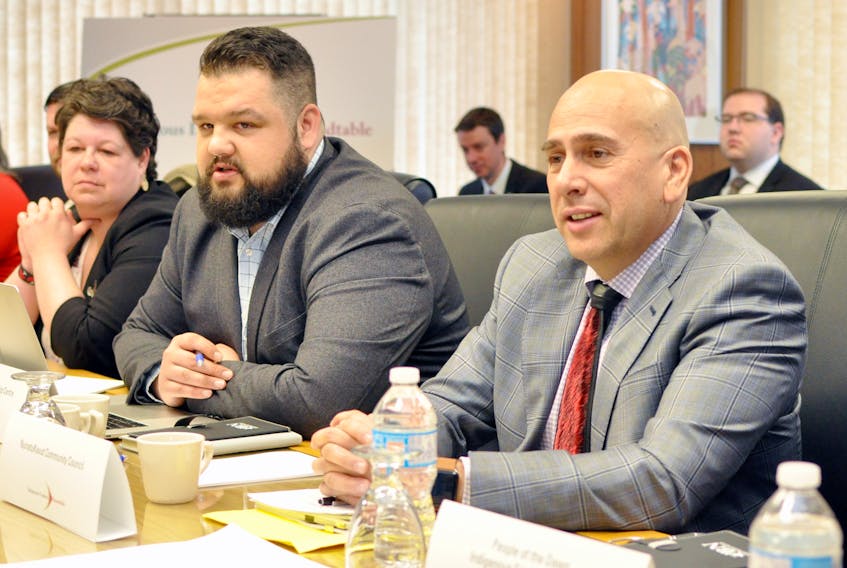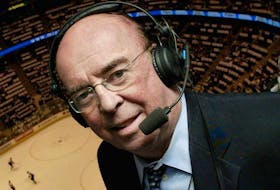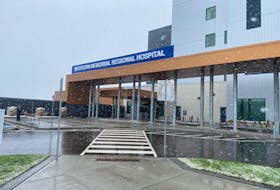Opening up the opportunity for indigenous students from this province to study law in Saskatchewan is a positive step, yet Todd Russell said there is much more work to be done in terms of changing the system.
Russell, who is the president of the NunatuKavut community council in Labrador, was in Corner Brook on Friday for an Indigenous Leaders Roundtable hosted by the provincial government at the Sir Richard Squires Building.
Prior to the start of the session Justice and Public Safety Minister Andrew Parsons announced that starting this fall the University of Saskatchewan has committed to reserve two seats annually in the university’s College of Law program for indigenous students from Newfoundland and Labrador. Parson’s is a graduate of the university.
The provincial government will fund two articling positions within Justice and Public Safety for those students to complete that portion of their studies.
The partnership also includes indigenous governments and organizations in the province, that will work on the selection and recruiting of students and will help funding the positions.
Russell said the hope is that this means opportunities will be afforded to having these students work in some of the smaller communities.
Russell said there is some research that shows positive results when indigenous clients have indigenous lawyers.
“That people are better represented when they’re represented by their someone from their own cultural group, in this case indigenous lawyers.”
As for the broken system, Russell said this may help and move the process of change forward.
He said the National Inquiry into Missing and Murdered Indigenous Women and Girls is focused on bringing change to the system.
“We’re very hopeful that the addition of indigenous voices, indigenous participants and indigenous lawyers will help change the system from the inside.
Russell said there are real benefits and enhancements to the legal system when indigenous people participate at all places and at all levels.
“We don’t want to see just indigenous lawyers be a part of a broken system and supporting that broken system. So, we need them to be agents of change within the system.”
What else was said
Andrew Parsons
Minister of Justice and Public Safety
“There’s no population that is more underrepresented within the justice system in our province than indigenous people.
“The best way to change a system is to make people more a part of that system.”
Martin Phillipson
Dean, University of Saskatchewan College of Law
“It’s so important that there is a pipeline of indigenous students going to university, then going into professional schools, including law schools, then becoming qualified as lawyers and then ending up in the bar, senior members on the bench.
“The law schools in Canada are getting much better at getting indigenous students into law school. They’re getting much better at graduating indigenous students from law school. But the last piece of the puzzle, and sort of completing the circle, is the fact that there will be significant employment opportunities at the end of these programs where these students can now take their place within the legal profession.”
Premier Dwight Ball
“When you look at the 94 calls for action within Truth and Reconciliation (Commission) we have a role to play.
“It is really pivotal for us to make sure that we put in place, as I mentioned when I spoke about the disproportionate number of incarcerations of indigenous people, and make sure that they have appropriate representation in the legal community.
“So, for us this was a gap that we recognized and seeing this opportunity, when the minister brought this to my attention, I was excited and it was something that we wanted to support and pursue.”









